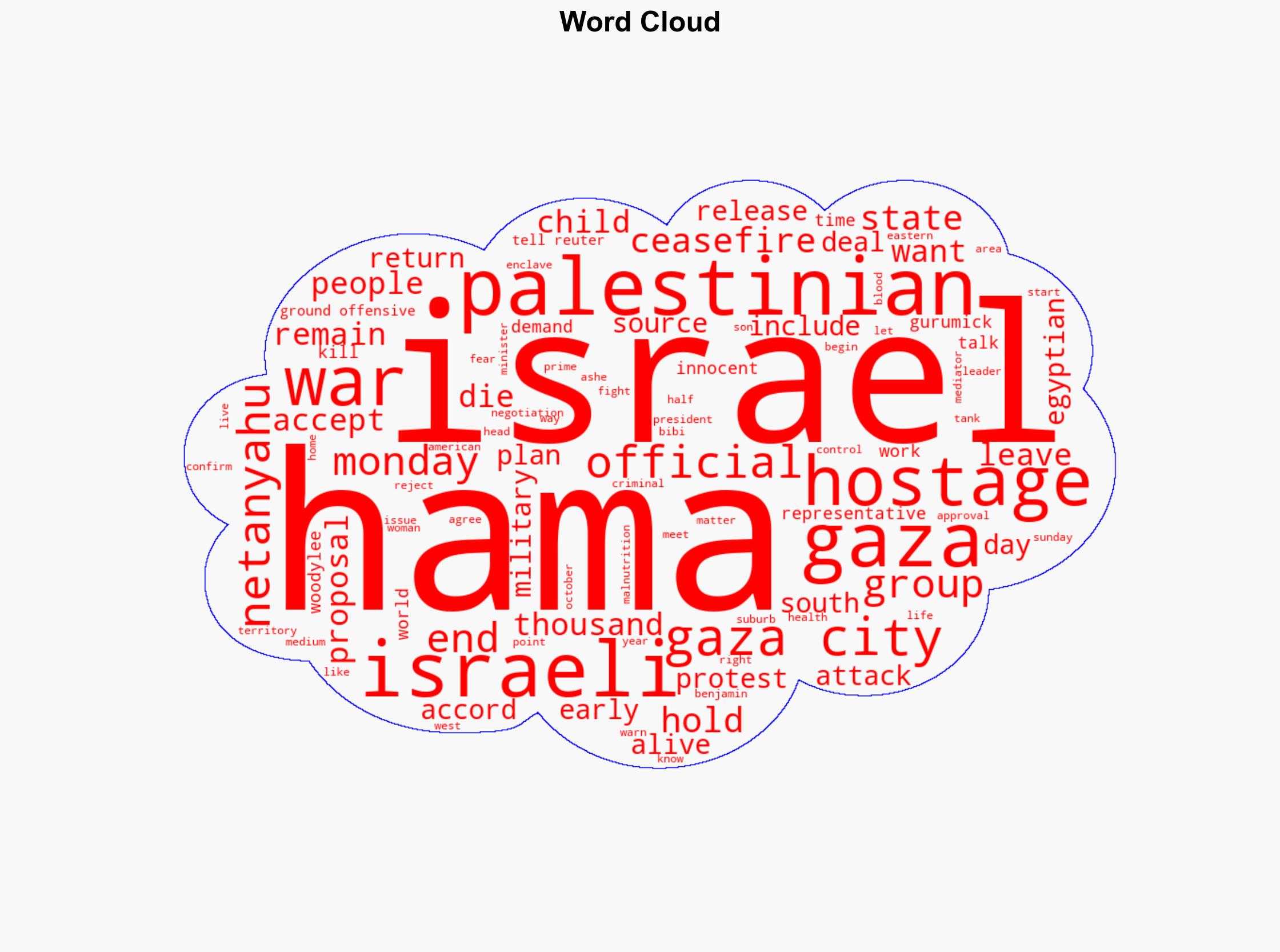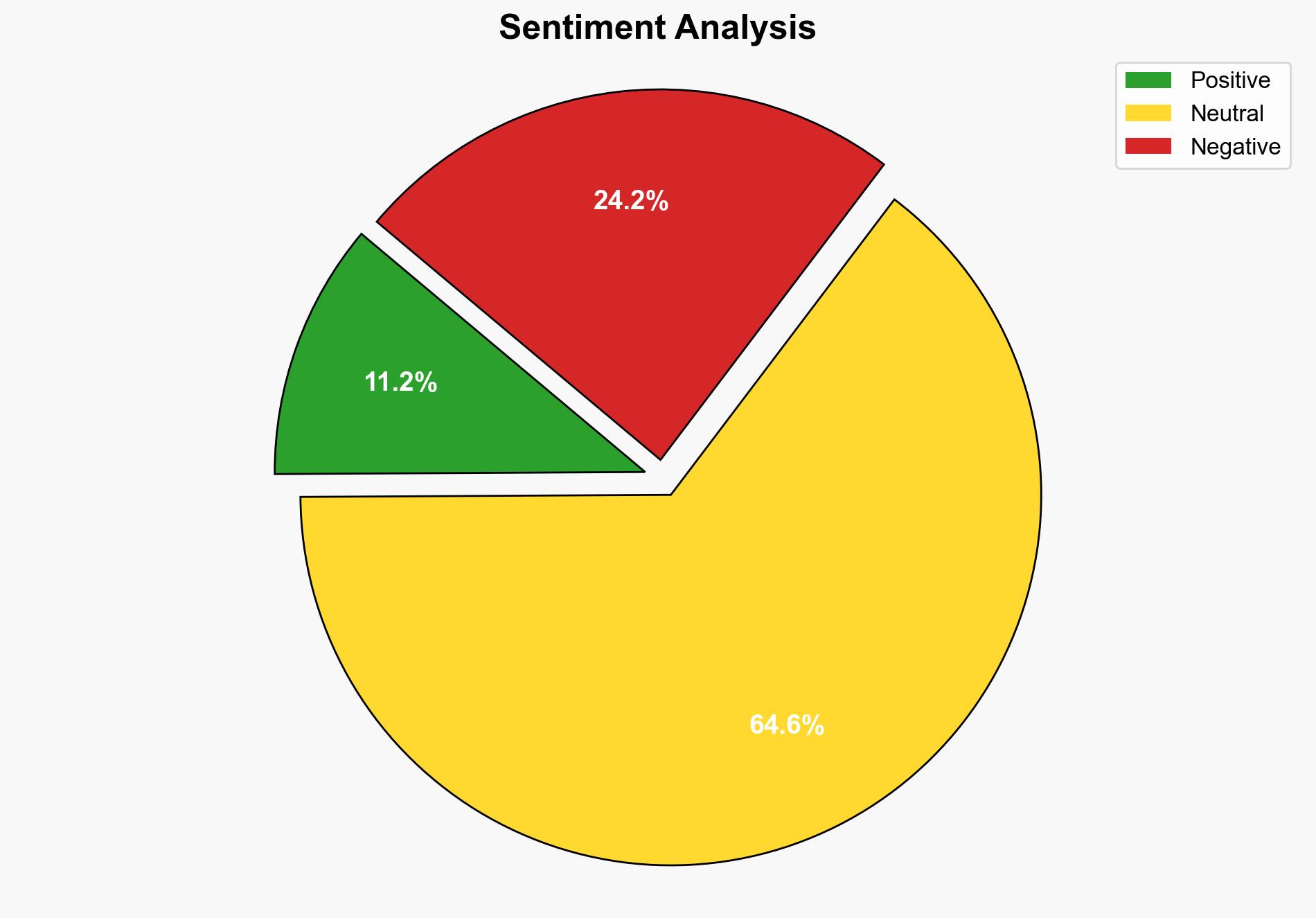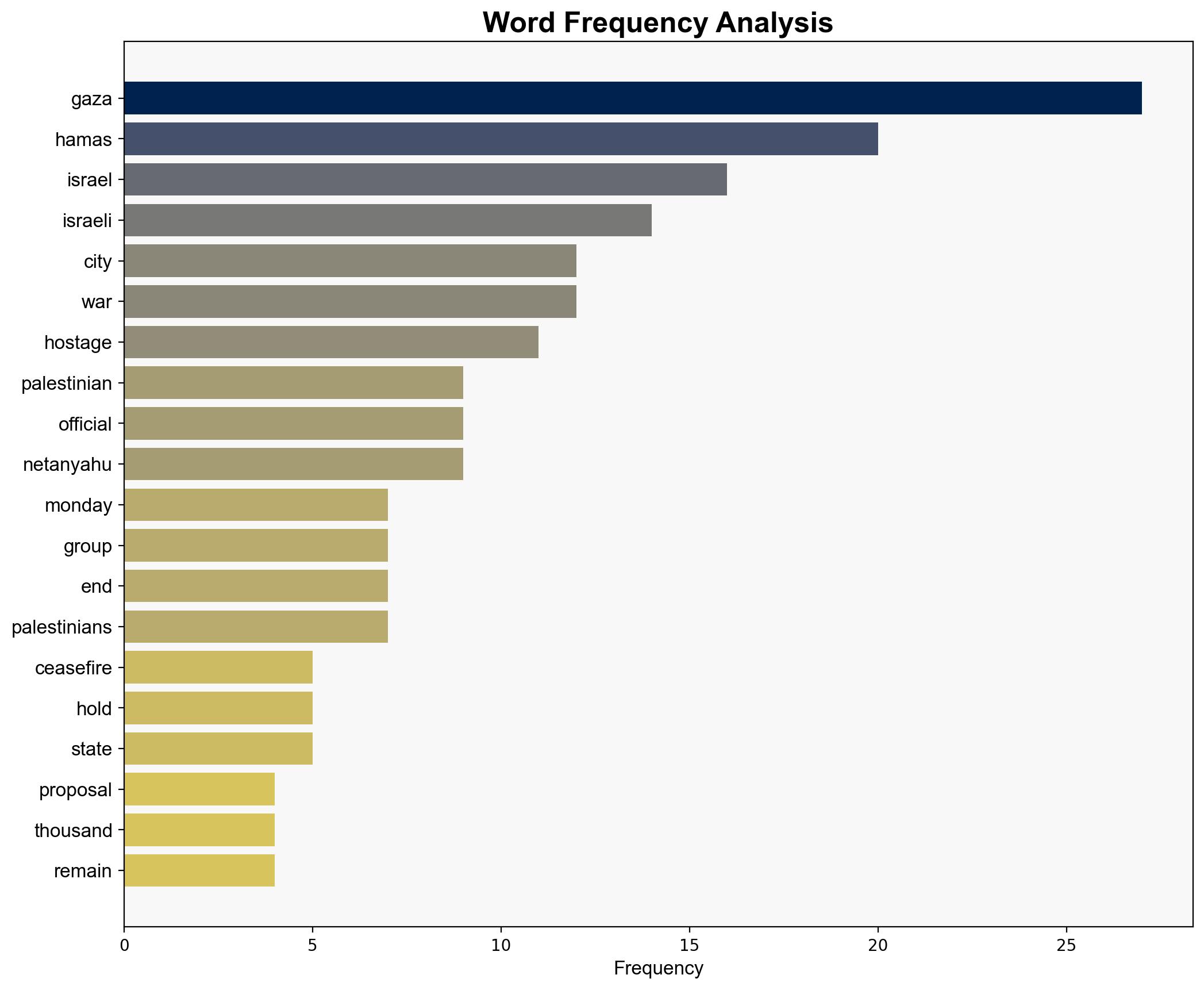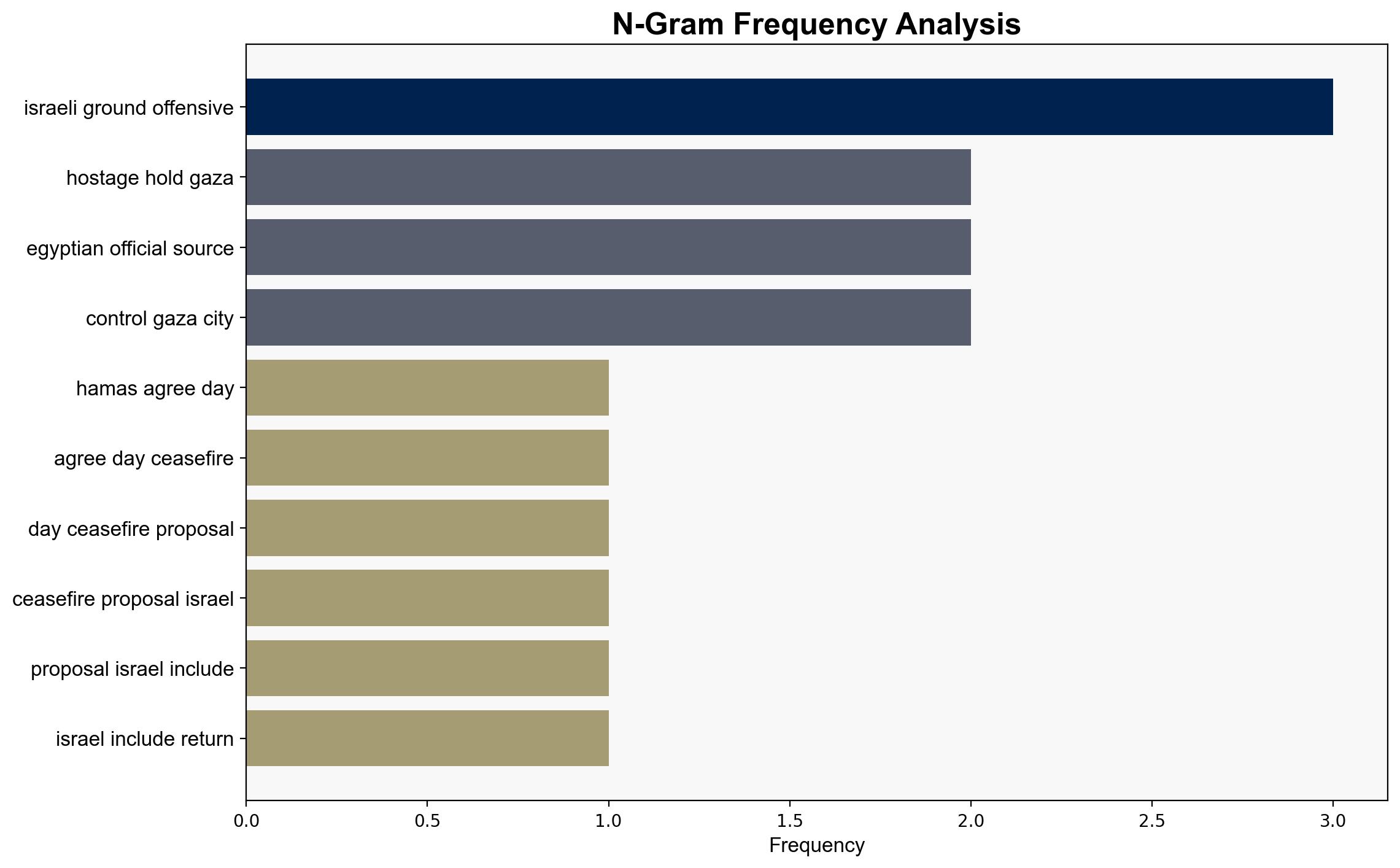Hamas accepts proposed deal for ceasefire with Israel and hostage release Egyptian source says – Japan Today
Published on: 2025-08-18
Intelligence Report: Hamas accepts proposed deal for ceasefire with Israel and hostage release Egyptian source says – Japan Today
1. BLUF (Bottom Line Up Front)
The intelligence suggests a potential ceasefire agreement between Hamas and Israel, with hostage exchanges as a central component. However, the situation remains fluid, with significant uncertainties regarding the implementation and sustainability of such a deal. The most supported hypothesis is that both parties are under pressure to de-escalate, but the risk of renewed hostilities remains high. Confidence level: Moderate. Recommended action: Encourage diplomatic engagement to solidify ceasefire terms and monitor for compliance.
2. Competing Hypotheses
1. **H1: Hamas and Israel are genuinely committed to a ceasefire and hostage exchange.** This hypothesis is supported by the reported acceptance of the ceasefire proposal by Hamas and the involvement of multiple mediators, including Egypt and Qatar.
2. **H2: The ceasefire proposal is a strategic maneuver by Hamas to regroup and strengthen its position.** This hypothesis considers the possibility that Hamas is using the ceasefire to gain a tactical advantage, potentially preparing for future conflict.
3. Key Assumptions and Red Flags
– **Assumptions**: Both hypotheses assume that the reported acceptance of the ceasefire is accurate and that mediators have the influence to enforce compliance.
– **Red Flags**: The lack of a confirmed Israeli response and potential internal dissent within both factions could undermine the agreement. The presence of Israeli military activity in Gaza suggests ongoing tensions.
– **Blind Spots**: The impact of external actors, such as Iran or other regional powers, on the decision-making processes of Hamas and Israel is not fully addressed.
4. Implications and Strategic Risks
– **Patterns**: Historical patterns of ceasefire agreements between Hamas and Israel often collapse due to unmet conditions or external provocations.
– **Cascading Threats**: A failed ceasefire could lead to intensified military conflict, increased regional instability, and humanitarian crises in Gaza.
– **Potential Escalation**: An Israeli ground offensive could provoke widespread unrest and draw in regional actors, escalating into a broader conflict.
5. Recommendations and Outlook
- Encourage international diplomatic efforts to ensure the ceasefire terms are clear and enforceable.
- Monitor for signs of non-compliance or preparation for renewed hostilities.
- Scenario Projections:
- Best Case: Successful ceasefire leads to long-term negotiations and stabilization.
- Worst Case: Breakdown of talks results in full-scale conflict and regional destabilization.
- Most Likely: Temporary ceasefire with intermittent skirmishes and ongoing diplomatic efforts.
6. Key Individuals and Entities
– Basem Naim (Hamas official)
– Sheikh Mohammed bin Abdulrahman Al Thani (Qatari Prime Minister)
– Benjamin Netanyahu
– Eyal Zamir
– Dani Miran
7. Thematic Tags
national security threats, counter-terrorism, regional focus, diplomatic negotiations, conflict resolution





